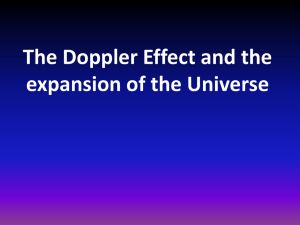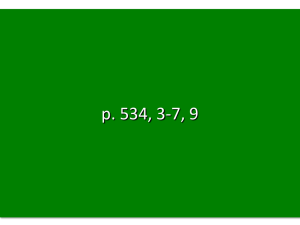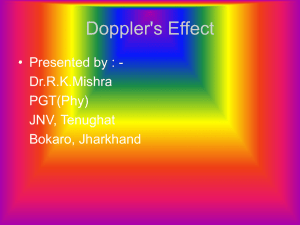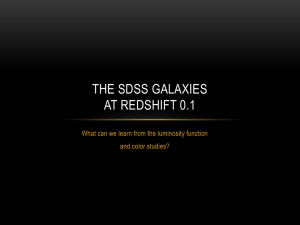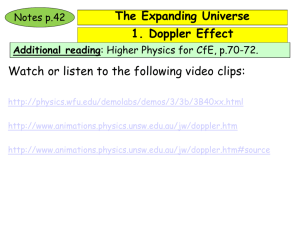IP1.31.3 Light and the doppler effect
advertisement
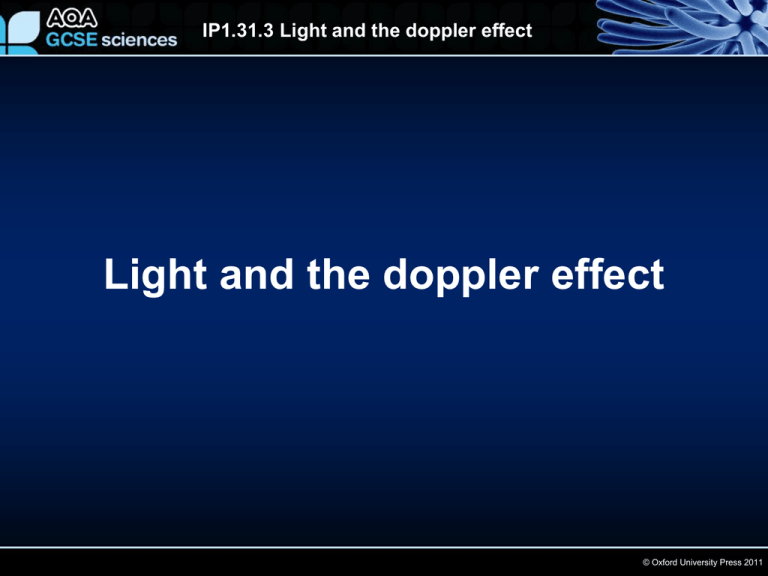
IP1.31.3 Light and the doppler effect Light and the doppler effect © Oxford University Press 2011 IP1.31.3 Light and the doppler effect Red shift Light from distant galaxies that are moving has changes in its wavelength due to the Doppler Effect. As galaxies move away from us the light is stretched and its wavelength increases. Red light has the longest wavelength of any colour, so the wavelength shifts towards the red end of the spectrum. This is called red shift. © Oxford University Press 2011 IP1.31.3 Light and the doppler effect Spectral absorption lines When we look at light from stars and galaxies there are some dark lines found in the spectrum of colour. These dark lines mean some wavelengths of light are missing. These lines are called spectral absorption lines. The missing wavelengths have been absorbed by the atoms in the star. © Oxford University Press 2011 IP1.31.3 Light and the doppler effect Spectral absorption lines and red shift When you look at distant galaxies they don’t actually seem redder. The speed of light is too fast for us to be able to see a colour change. We see red shift as a movement of spectral absorption lines. The dark lines should always appear in the same place, as the atoms can only absorb certain wavelengths. When we look at spectral absorption lines for distant galaxies the lines are shifted towards the red end of the spectrum. This is because the galaxy is moving away from us. Scientists found that the further away a galaxy is, the greater this shift. In other words the galaxies further away are moving faster. © Oxford University Press 2011 IP1.31.3 Light and the doppler effect Edwin Hubble, an American physicist, was the first to notice red shift in distant galaxies. The fact that distant galaxies are moving faster is called Hubble’s Law. © Oxford University Press 2011

